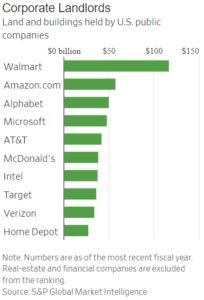
Amazon Continues to Grow
In a year where many businesses continued to struggle, Amazon did not. What started as an online bookstore is now a global technology powerhouse in logistics, cloud computing, e-commerce, and much more. On September 28th, Amazon debuted their new version of a home robot, named Astro. Designed to be a household companion, it can make a call, deliver beverages, scan your home for suspicious activity, and more. We shall see if it warrants its $999 price tag. Several news outlets have started wondering why Amazon would want to come out with something like this unless it ultimately ties back to your purchases. If a robot follows you, knows your house, and listens to you – Amazon will know what you like, use, and want. This type of surveillance already exists with phones and TVs, so it will be interesting to see how much push back or adoption an idea like this gets over the next decade as consumers aim to connect their lives with technology more and more.Faster Charging is Coming
ABB Ltd., a Switzerland-based company, unveiled plans for a new electric vehicle (EV) charger which strives to provide the fastest charging experience on the market. Ideally used for charging stations, this can charge up to four vehicles at once and can deliver 100 km (60 miles) of range in less than 3 minutes. One of the major criticisms in the shift to EV cars has been the time it takes to charge them instead of filling up at a gas station. With this new proposed technology, that argument softens. The company plans to roll out its first chargers in Europe by the end of 2021 and will start to install them elsewhere next year. As electric chargers become more commonplace, adoption in the EV space could continue to shift over time, especially as major car manufacturers continue to move away from internal combustion engine (ICE) vehicles.U.S. companies continue to pile their unused cash into real estate around the country. According to S&P Global Intelligence as reported by the WSJ, “publicly traded U.S. companies own land and buildings valued at $1.64 trillion which is up 38% from 10 years ago.” As corporate cash levels continue to rise thanks to easy monetary and fiscal policy, and with interest rates at record lows, corporations continue to look for alternative investment opportunities. Real estate has become a more attractive option than low-risk bonds or other alternatives.
Corporations Keep Buying Real Estate

Companies like McDonald’s have long owned the real estate where the franchise sits, and more companies are moving towards ownership and away from leasing larger spaces. Owning these buildings means they can make the necessary renovations, while simultaneously increasing the overall return on their investment. Larger companies flush with cash have the luxury of taking advantage of distorted pricing by paying outright for the building, thus ensuring the deal happens quickly.
The views expressed in this commentary are subject to change based on the market and other conditions. These documents may contain certain statements that may be deemed forward‐looking statements. Please note that any such statements are not guarantees of any future performance and actual results or developments may differ materially from those projected. Any projections, market outlooks, or estimates are based upon certain assumptions and should not be construed as indicative of actual events that will occur. Principle Wealth Partners LLC is a registered investment advisor. Advisory services are only offered to clients or prospective clients where Principle Wealth Partners and its representatives are properly licensed or exempt from licensure. For additional information, please visit our website at https://principlewealthpartners.com
